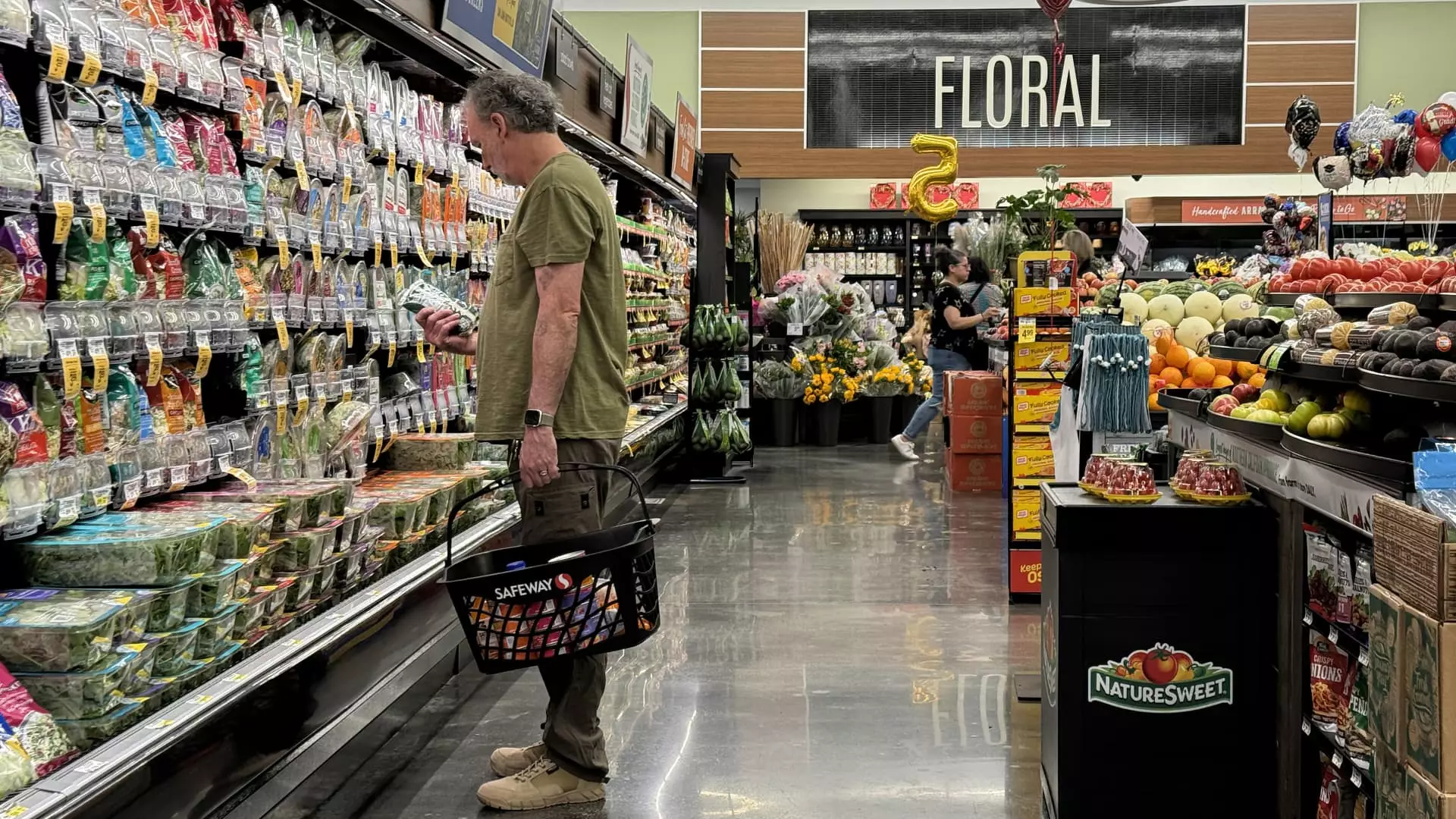The latest government inflation data indicates that the rate of price increases for food has slowed down in recent months. However, despite this, the majority of American shoppers still feel overwhelmed by the high prices they encounter in grocery stores. According to a report by Intuit Credit Karma, 80% of Americans have experienced a significant rise in grocery costs within the past few years, with prices surging by 25% since the onset of the pandemic. The escalation in grocery prices has led to financial strain for many consumers, causing them to make tough decisions. A substantial portion of individuals (28%) have had to compromise on essentials like rent or bills to make ends meet, and 27% have resorted to skipping meals occasionally. A worrying 18% of respondents have either applied for or contemplated applying for food stamps, while 15% have relied on or considered turning to food banks. Surprisingly, 53% of those surveyed believe that their income is too high to qualify for government assistance, yet they still struggle to cover basic necessities.
While grocery costs have taken center stage, other expenses have also seen a surge. In addition to higher grocery prices, 51% of consumers have noticed an uptick in gasoline costs, 39% have reported an increase in bills such as cable, electricity, and internet, 27% have seen a rise in housing expenses, and dining out expenses have also climbed for 27% of respondents. The online survey conducted by Qualtrics for Intuit Credit Karma, which polled 2,011 adults from May 7-13, sheds light on the widespread financial strain faced by American households. The escalation in grocery prices has not gone unnoticed by lawmakers, with Senator Elizabeth Warren highlighting the issue during a recent Senate hearing. She remarked, “Grocery prices skyrocketed during the pandemic, and in many cases they’ve kept going up, even though the pandemic is over.”
Retailers have started taking steps to alleviate the burden on consumers grappling with rising grocery costs. Target, Amazon Fresh, and Walmart have rolled out plans to slash prices on a wide range of grocery items to ease the strain on shoppers. Target has announced price reductions on approximately 5,000 products, including essential items like meat, milk, fruits, and vegetables. Similarly, Amazon Fresh has pledged to lower prices on around 4,000 items both online and in stores. Walmart has ramped up its “rollbacks” on groceries and introduced sales on various items to offer relief to price-conscious consumers.
For individuals struggling to afford groceries, seeking assistance from a local food bank through FeedingAmerica.org is recommended. Meanwhile, those who have some flexibility in their budgets can adopt new strategies to manage their spending effectively. Smart shopping expert Trae Bodge suggests that this is a prime opportunity to develop prudent shopping habits to stretch your budget further. Even though food inflation is showing signs of slowing down, some product categories have witnessed notable year-over-year price hikes, such as juices and drinks, frankfurters, and bacon. Experts advise consumers to avoid these categories where costs are escalating to keep their grocery bills in check. Making simple changes, such as eating at home instead of dining out or opting for more cost-effective food items, can help mitigate the impact of rising prices. Visiting different retailers either in-person or online can enable consumers to compare prices and take advantage of discounts and promotions, particularly if stores offer loyalty programs.
Additionally, purchasing store or generic brands, buying in bulk, and leveraging coupon sites and apps can help maximize savings on groceries. Websites like CouponCabin, Flashfood, and Martie provide discounts and deals on a wide range of grocery items, allowing consumers to snag significant savings on their purchases. Another way to save on grocery expenses is by utilizing credit cards that offer cash-back rewards at the checkout counter. However, it is crucial to ensure that you can pay off the balance in full each month to avoid accruing debt. Research from the Urban Institute warns against relying on credit cards, buy now pay later schemes, and payday loans to cover grocery bills, as this could lead to long-term financial repercussions for Americans.
By adopting a combination of budget-friendly practices, consumers can navigate the challenging landscape of rising grocery prices and make informed choices to safeguard their financial well-being.

